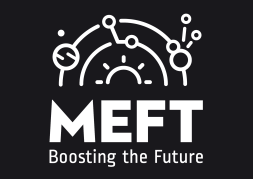Speaker
Description
This project focuses on behaviour modelling. It aims to unravel differences in decision-making data between individuals with Obsessive-Compulsive Disorder and healthy controls. The topic can be considered as part of Computational Psychiatry, an area of proven usefulness in the discovery of properties of mental disorders. Well-established methods, such as Reinforcement Learning and Bayesian Inference, will be applied to the construction of computational models. These will then be fitted to data from a Reversal Learning Task performed by both individuals with and without the disorder, experimentally collected under the umbrella of a larger project of the Neuropsychiatry Group of the Champalimaud Foundation. This kind of task explores how the participants adapt to sudden swaps of reward/punishment contingencies. The ultimate goal is to explain and uncover differences in the mechanisms involved in the two populations, for instance, by checking if some coarse model parameters differ consistently for the obsessive-compulsive subpopulation or if they make less use of certain kinds of cognition (such as Bayesian Inference for considering hidden states). These can eventually lead to future quantitative markers with clinical applications.

